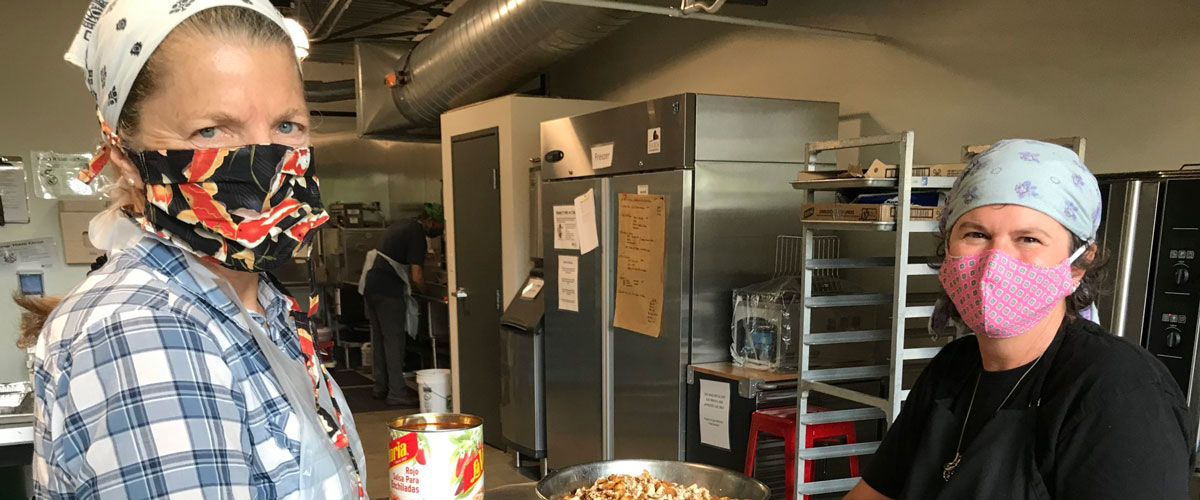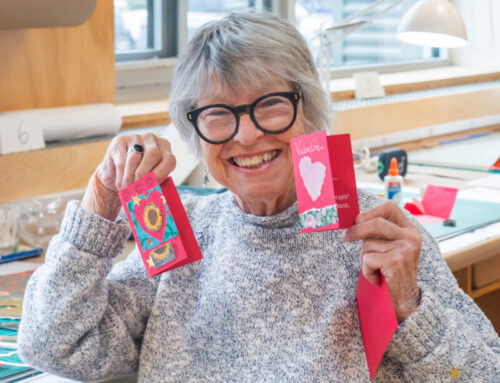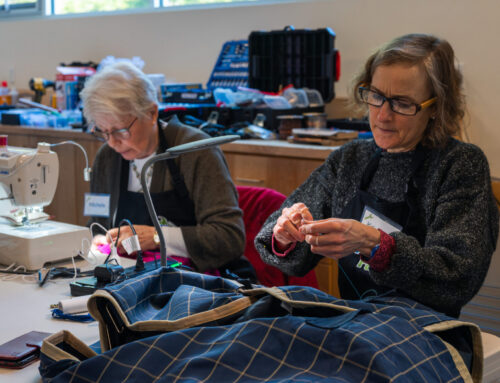Last April, as the world shut down, volunteers gathered in BARN’s clean and spacious Kitchen Arts studio – one of the only kitchens on Bainbridge where four or five people could cook safely separated by 6 feet of distance. Making food was something that was needed, it was something they loved to do, and it was something they could do together. So began the BARN Bites program. That first week, the BARN Bites volunteers made 200 plus meals from scratch to donate to community members in need.
With the closure of restaurants and community kitchens at the beginning of the pandemic, we lost the magic of coming together to prepare and share food. Weekly community meals held by churches and community organizations ended due to health and safety restrictions. For many, meals became solitary and simple. For others, full kitchens were no longer accessible. During the last year, a deep connection between food and community evaporated. In addition, many families also saw a drastic or gradual decline in their income due to COVID-19, greatly affecting their ability to provide healthy food for their household.
Meghan Males headed the BARN Bites effort, even funding the first week of meals herself. She had worked in the kitchens at Gap Inc. before moving to Bainbridge Island, where she acquired experience creating meals for hundreds of employees, managing the process of making vast amounts of excellent food on a budget and with supply constraints.
After that, BARN Bites was funded by individual donors and grants from Bainbridge Community Foundation, First Federal Bank, and Kitsap Bank. After a few weeks, the team was making 270 meals per week with menus like roast pork loin with kale and bulgur salad, vegan vegetable curry and rice, braised chicken Marsala and mushrooms, and lemon vegetable and rice soup.
Volunteers at Helpline House, ShareNet Food Bank, Bainbridge Senior Council, Gateway Church and Island Volunteer Caregivers delivered the silver, reheatable containers throughout the island, and around the Kitsap Peninsula. Usually, their customers received ingredients, not fully prepared meals like these. The delivery drivers reported back what they had been hearing from recipients: people felt like they were eating out! For one night a week, BARN Bites allowed a sense of that normalcy that had been so elusive and precious since the pandemic began.
For almost a full year, the same twenty or so BARN volunteers each put in more than 20 hours a week. Meghan found that “It turned out to be a cathartic gathering. For a while there, it was the one time of week they were getting out and talking to other people who weren’t family members, and doing something they enjoyed.” To have a routine during this isolated time was precious, and despite the long hours on their feet and heavy lifting, many volunteers looked forward to it every week.
In total, the program delivered over 8,000 meals to households in need. As restaurants have reopened and safety restrictions have eased, the BARN Bites program has ended. However, if it is ever again needed, the project could quickly spring back into action.
By Genevieve Douglass Persen





Follow Us